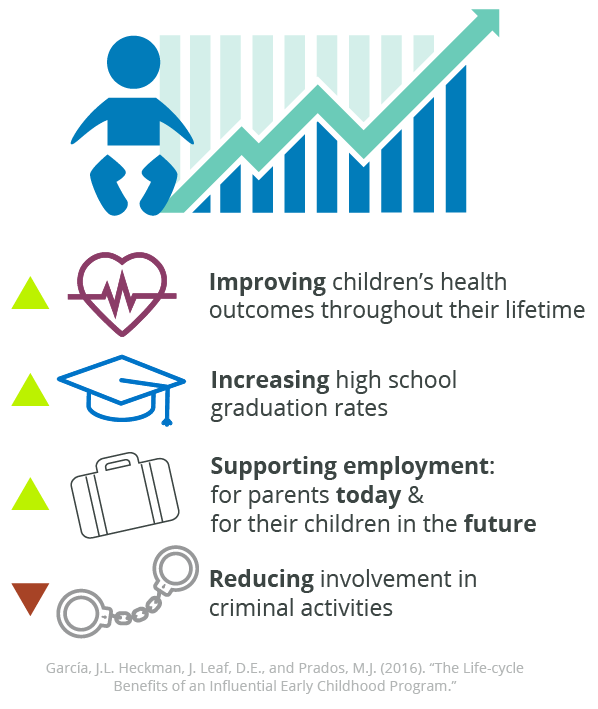łÔąĎÍř News & Newsletter Updates Now Available
Welcome to the inaugural issue of the łÔąĎÍř Newsletter. This short newsletter, issued quarterly, is intended to brief you about what’s new at the łÔąĎÍř and provide updates to related research. Each newsletter will be archived here on the łÔąĎÍř, so you won’t need to worry about missing an issue. In addition to these quarterly newsletter updates, we will also post additional news articles from time to time with details about the łÔąĎÍř and occassional updates regarding research and child care. Check out the other articles we've already posted in the news section. Our latest featured news article or newsletter will always be available on our homepage. A full listing of the news articles will be listed here:
New Family Child Care Track Now Available
We are pleased to announce that the family child care (FCC) track is now live! This track contains the 15 Foundational Courses available on the łÔąĎÍř, with information, activities and resources tailored to FCC providers. The family child care track could not have been completed without funding provided by the US Department of Defense’s Office of Family Policy/Children and Youth and the help of many individuals --to whom we are grateful, including: DoD and Service headquarters staff who were instrumental in reviewing the developed content; trainers, FCC coordinators and providers who provided interviews; FCC providers who allowed us to film in their programs, providers who participated in the pilot of FCC courses; parents who allowed us to film their children; and of course – the family child care children!

Upcoming Content: Focused Topics Courses
In addition to the 15 Foundational Courses now available on the łÔąĎÍř, we are also launching a series of Focused Topics courses over the next few months. Each focused topic course is centralized around a specific topic, offering in-depth content and resources. Here are some of the Focused Topics courses we are releasing in the coming months, or that are in development:

Focused Topics Course:
SELF-T - Social Emotional Learning for Teachers
We know it’s important to help children develop social emotional skills, but who helps you improve your social emotional well-being? In November 2017, we finished a community-based pilot of the Social Emotional Learning for Teachers (SELF-T) course. We surveyed 60 full-time infant, toddler, and preschool teachers with at least one year experience. The study consisted of a pre survey, an online prevention program (in the form of the five-lesson SELF-T course on łÔąĎÍř) and a post survey that also elicited course feedback. The course helps teachers consider how stress affects our bodies and our thinking, and provides strategies for responding to stress and improving resilience. The research findings were positive. After completing the course, more than 83% of teachers said they knew how to better respond to and reduce their own stress. In addition, more than 62% said the course has made their work with children easier. Teachers who completed the course were also less likely to respond negatively to children’s emotional distress. Based on feedback provided by study participants, the łÔąĎÍř team updated the course content and the course is in the final stages of internal review. The SELF-T course will be live for all to use in February 2018.

Focused Topics Course:
Food Service Essentials for Child Care
The Food Service Essentials for Child Care course was designed to provide training for food service staff working in child development centers or school-age and youth programs. The seven-lesson course details important aspects of food service in child care settings and covers the following topics in detail: menu planning; family-style dining; preparation & presentation; inventory management; hygiene & sanitation; temperature control; and pathogens & allergens.
We have just received feedback from DoD and Service headquarters staff on the initial draft of this course and will be making revisions to launch this course in the first quarter of 2018.

Focused Topics Course:
Language Diversity
Coming Soon
Exploring languages and cultures in child care programs; supporting monolingual, bilingual and multilingual children
Given the large number of languages spoken in the U.S, it is very likely that you will serve children, youth, and families who speak a language that is unfamiliar to you. Your own communication skills and language strengths will be called upon frequently. If you speak a language other than English, this course will help you use those strengths in your work with children. If you do not speak a language other than English, this course will give you strategies to build a language-rich classroom and program.
Research Update

Investing in High Quality Care for Young Children Helps Everyone
Key research that Dr. Cynthia Buettner often shares during łÔąĎÍř trainings sessions is the return on investment to society when we provide young children with high quality care and education. Research by Nobel Prize-winning economist James Heckman has found that the return on investment (or ROI) in such care can reach upwards of 14% when health returns are included (e.g., adults who received high quality care as young children show lower blood pressure, lower rates of heart disease and substance abuse). Children who receive high quality early care are also more likely to succeed academically when they transition to grade and high school. You can read more about this research at

